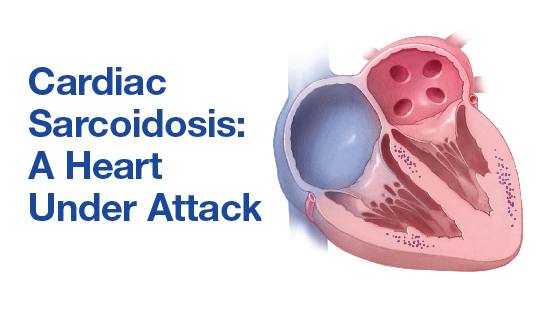-
Science Saturday: A hard look at a devastating heart disease

Though rare, cardiac sarcoidosis is a condition that can wreak havoc on the heart.
It can be triggered by environmental or infectious agents and is characterized by an overactive immune response, involving clusters of white blood cells that aggregate in heart tissue. Those clusters can result in the need for a pacemaker, and may even lead to heart failure. But because it affects fewer than 10 out of every 100,000 people in North America and can have non-specific symptoms, cardiac sarcoidosis has been a particularly difficult disease to study.
A recent investigation led by Leslie T. Cooper, M.D., chair of cardiovascular medicine on Mayo Clinic’s campus in Florida, took a close look at the frequently used treatments for cardiac sarcoidosis and compared the long term results. Publishing in the European Journal of Heart Failure, the study involved collaborators at the University of Calgary and compared the effectiveness of the steroid prednisone, immunosuppressive agents other than prednisone, or no immunosuppressive treatment at all during the first months following diagnosis. Conducting one of the largest reviews of patient cases to date—a total of 91 patients—the team found none of the treatments provided greater long-term survival or prevention of heart failure.
“Regardless of therapy, there seems to be a high rate of heart failure in the five years following initial diagnosis,” says Dr. Cooper. “This study underscores the need for more research investigating new therapies for this unmet need.” Read the rest of the article on Advancing the Science blog.
_________________________
Other Mayo Clinic medical research websites:
- Research at Mayo Clinic
- Discovery’s Edge
- Advancing the Science
- Forefront
- Mayo Clinic Center for Individualized Medicine
- Center for Regenerative Medicine
- Center for the Science of Health Care Delivery







